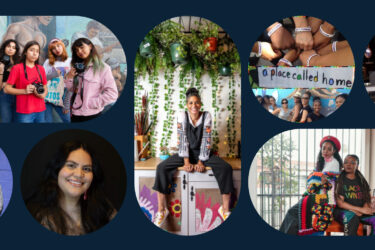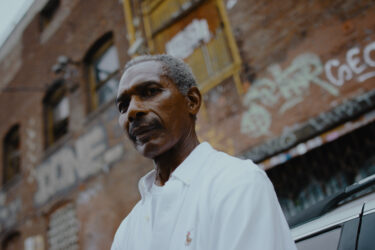Roughly 2,000 people recently joined us on a video call to discuss the impact of COVID-19 on our housing and homelessness crisis. We were joined by homeless service providers, outreach workers, and community leaders who shared information about what is being done to support people who are living on the streets or at risk of losing their homes due to the pandemic.
Denise Ramirez is a Peer Case Manager from HOPICS and updated us on what going out into the community is currently like: “As outreach workers what we’re seeing is a great need for access to information. So our teams are still going out, they’re still hitting the streets and continuing to outreach to individuals.”
Meredith Berkson, Director of Policy and Systems at the Los Angeles Homeless Services Authority, told us that the emergency shelters being set up across L.A. are critical. “You can’t shelter in place and self-isolate if you don’t have a place to sleep,” she said.
The community is clearly concerned about how the pandemic makes access to services and health resources even more difficult for people living on the streets. Before and during the call, we received question after question asking what people living outside were supposed to do, how they could access food, shelter, counseling, and other necessary resources.
Pastor Lisa Williams from San Pedro United Methodist Church expressed how we’ve gone from one crisis to another. “Up until three weeks ago our unhoused crisis was the greatest humanitarian crisis, it was what kept me up, and I’m sure most of you up at night, especially when it rains,” she said. “And now this crisis has just been exacerbated and grown.” And if the lack of resources and information weren’t enough, Pastor Lisa shared that people in the encampments she visits have been feeling a sense of abandonment.
It was clear from the turnout and the thoughtful questions that this community is rallying around our most vulnerable neighbors during this time of crisis. We all have questions and are wondering how to share updates with people living on the streets, and learn what they need from us. As Eric Ares, Manager of Homeless Systems Change from United Way of Greater Los Angeles put it, “What’s really important right now is information going both ways, really being in contact with outreach teams that are hearing what are the most basic needs that folks on the streets are experiencing.”
So many have asked about the best ways to help out while practicing physical distancing. One of the ways people can help is by calling one of their elected officials at the city or county level and urging them to provide more support to our most vulnerable neighbors. Senior Director of Impact Initiatives at United Way, Tommy Newman stressed how critical contacting our representatives is: “When those elected officials get those phone calls, when they get those emails, it matters, it makes a difference, it leaves a mark.”
In addition to United Way of Greater L.A.’s Pandemic Relief Fund, people are being encouraged to donate needed supplies directly to their local service agencies.
This is an adjustment for all of us, but community and coming together is where we thrive. As Dr. Norman Kim of Ayana Therapy shared, “We are profoundly social creatures, so social distancing goes against who we really are at our core.” Physical distancing has shifted the way we function in our daily lives, including how we show up for people experiencing homelessness. Our community is strong. It looks a bit different now, for the safety of everyone, but the key is sharing this critical information that changes by the day. As Bill Pickel of Brilliant Corners reminded us, “It’s really important to stay connected, even if virtually, and to share information.”
And for those who want to help but are unable to make any kind of financial contribution, please stay connected. Join us for future calls, and keep an eye out for our emails with suggestions of how to stay involved through our online workshops or other advocacy opportunities. As Chris Ko of United Way of Greater L.A. said, “The ways you could’ve helped three weeks ago are still the ways you can help now.” Homelessness was a crisis before COVID-19 and we will have that much more work to do in the weeks and months ahead.
We’re so grateful to the hard-working service providers who shared their valuable insights, and to the overwhelming support and interest from all of you, without whom our work would not be possible. As our friend and CSH Speak Up! Advocate Zondre Johnson said, “The moment you walk away, help walks away too.”
If you or someone you know needs information, visit our FAQ page.
Join us on our next community call, RSVP here.



